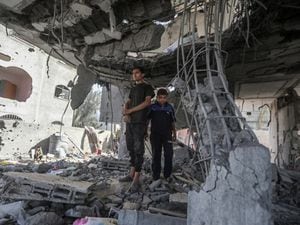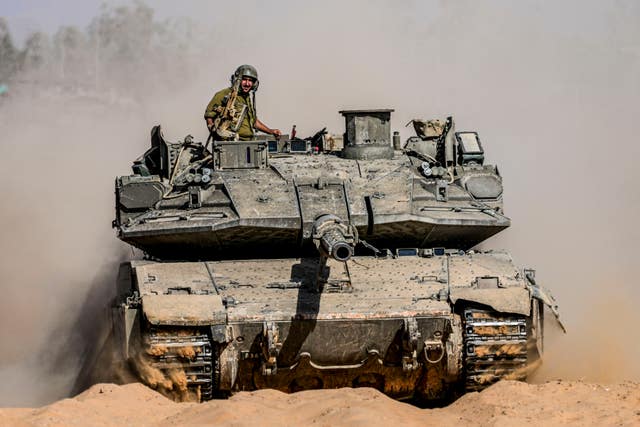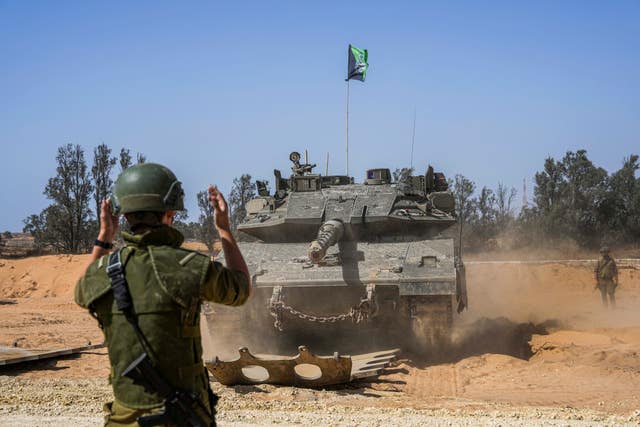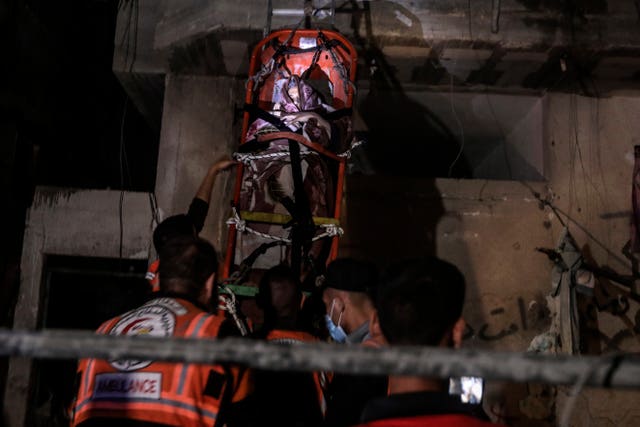Israeli army tells Palestinians to temporarily evacuate parts of Rafah
People have been told to go to Muwasi, an area near the coast.

The Israeli army has told Palestinians to begin evacuating eastern Rafah, according to an Israeli Defence Force statement on Monday, signalling that a ground invasion is imminent.
People were told to move to Muwasi, an Israeli-declared humanitarian area near the coast. The army said it had expanded assistance into the area, including field hospitals, tents, food and water.
On Sunday, defence minister Yoav Gallant claimed Hamas was not serious about a deal and warned of “a powerful operation in the very near future in Rafah”.
His comments came after Hamas attacked Israel’s main crossing point Sunday for delivering assistance, killing four soldiers.
Israel has described Rafah as the last significant Hamas stronghold after seven months of war, and its leaders have repeatedly said they need to carry out a ground invasion to defeat the Islamic militant group.

But last October, Israel did not formally announce the launch of a ground invasion that continues to this day.
The move comes a day after Hamas militants carried out a deadly rocket attack from the area that killed four Israeli soldiers.

He said Israel has expanded humanitarian aid into Muwasi, including field hospitals, tents, food and water.
Israel’s army said on the social media platform X that it would act with “extreme force” against militants, and urged the population to evacuate immediately for their safety.
Jan Egeland, secretary-general of the Norwegian Refugee Council, condemned the “forced, unlawful” evacuation order and the idea that people should go to Muwasi, adding: “The area is already overstretched and devoid of vital services.”
Israel’s plan to invade Rafah has raised global alarm because of the potential for harm to more than a million Palestinian civilians sheltering there.
About 1.4 million Palestinians — more than half of Gaza’s population — are jammed into the town and its surroundings.

They live in densely packed tent camps, overflowing UN shelters or crowded apartments, and are dependent on international aid for food, with sanitation systems and medical facilities infrastructure crippled.
The United States, Israel’s closest ally, has repeatedly urged Israel not to carry out the invasion, saying it does not have a credible plan to protect civilians.
But even as the US, Egypt and Qatar have pushed for a ceasefire agreement, Prime Minister Benjamin Netanyahu repeated last week that the military would move on the town “with or without a deal” to achieve its goal of destroying the Hamas militant group.
A Hamas official said Israel is trying to pressure the group into making concessions on the ceasefire, but that it will not change its demands.
Hamas wants a full end to the war, withdrawal of Israeli troops from Gaza and the eventual reconstruction of the strip in exchange for the Israeli hostages held by the militants.
Lt Col Shoshani would not say whether the upcoming Rafah operation is a response to Sunday’s killing of the four soldiers. He said the incident would have no effect on the amounts of badly needed aid entering Gaza because other crossing points remain operational.
He would not comment, however, on US warnings not to invade and was not clear on whether the evacuation was coordinated with Egypt.
Egypt, a strategic partner of Israel, has said that an Israeli military seizure of the Gaza-Egypt border – which is supposed to be demilitarised – or any move to push Palestinians into Egypt would threaten its four-decade-old peace agreement with Israel.





